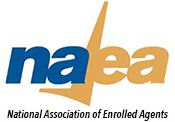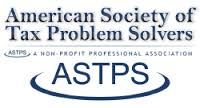Welcome to the TaxGenuity Blog
Tax Tips: Obtaining Prior-Year Tax Information
Tax season may be over, but you still need to hang onto your tax returns and other tax records for at least three years. However, if the IRS believes you have significantly underreported your income (by 25 percent or more), or believes there may be an indication of...
Health Care Tax Credit Relief for Small Employers
Tax relief is available for certain small employers who provide health coverage to their employees and wish to claim the Small Business Health Care Tax Credit for 2017 and later years. To qualify for the credit small employers must provide employees with a qualified...
Home Equity Loan Interest Still Deductible
The Tax Cuts and Jobs Act has resulted in questions from taxpayers about many tax provisions including whether interest paid on home equity loans is still deductible. The good news is that despite newly-enacted restrictions on home mortgages, taxpayers can often still...
Using a Car for Business: New Rules under TCJA
Many of the tax provisions under tax reform were favorable to small business owners including those relating to using a car for business. Here's what you need to know. 1. Section 179 Expense Deduction If you bought a new car in 2018 and use it more 50 percent for...
Self-Employed? Five Easy Ways to Lower your Tax Bill
If you're like most small business owners, you're always looking for ways to lower your taxable income. Here are five ways to do just that. 1. Deducting the Cost of a Home Computer If you purchased a computer and use it for work-related purposes, you can take...
Tax-Saving Strategies that Reduce your Tax Liability
If you're looking to save money on your taxes this year, consider using one or more of these tax-saving strategies to reduce your income, lower your tax bracket, and minimize your tax bill. Max Out Your 401(k) or Contribute to an IRA You've heard it before, but it's...
Selling your Small Business
Selling a small to medium-sized business is a complex venture, and many business owners are not aware of the tax consequences. If you're thinking about selling your business the first step is to consult a competent tax professional. You will need to make sure your...
What to do when your Tax Return is late
Tuesday, April 17, 2018, was the tax deadline for most taxpayers to file their tax returns. If you haven't filed a 2017 tax return yet, it's not too late, and it may be easier than you think. First, gather any information related to income and deductions for the tax...
Small Business: Tax Breaks for Charitable Giving
Tax breaks for charitable giving aren't limited to individuals, your small business can benefit as well. If you own a small to medium size business and are committed to giving back to the community through charitable giving, here's what you should know. 1. Verify that...
TaxGenuity is Open Year-Round for All Your Tax Needs
Although the 2018 tax filing season ended two weeks ago for filing the tax-year 2017 tax returns, our office is open year-round to help with all of your tax needs. Please call our office at 727 330-3500 and we will be very happy to assist you with any tax issues....












